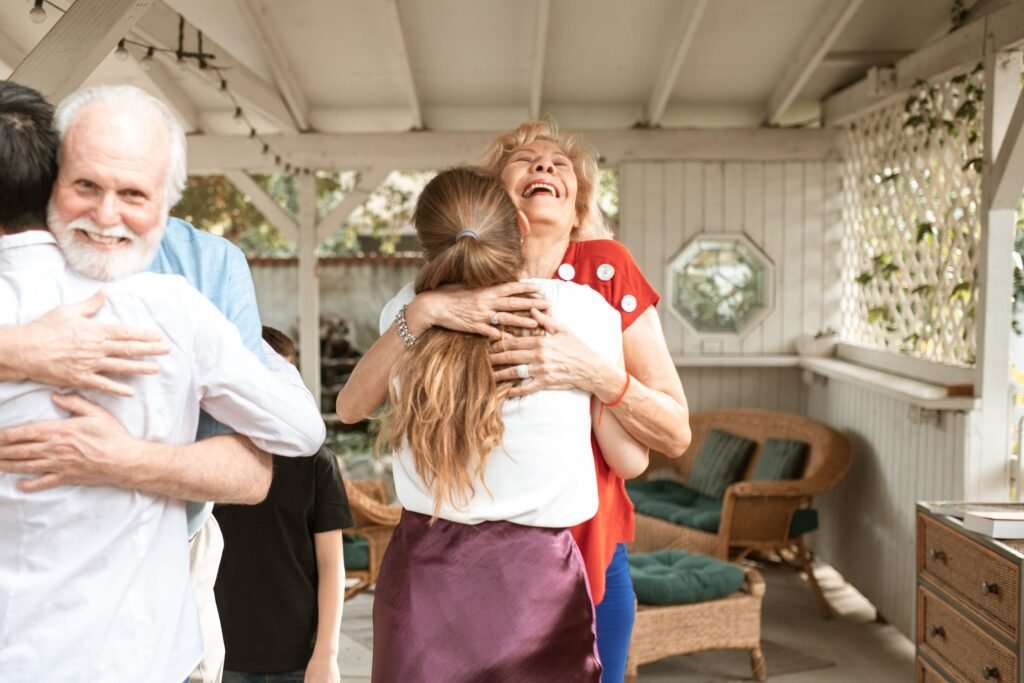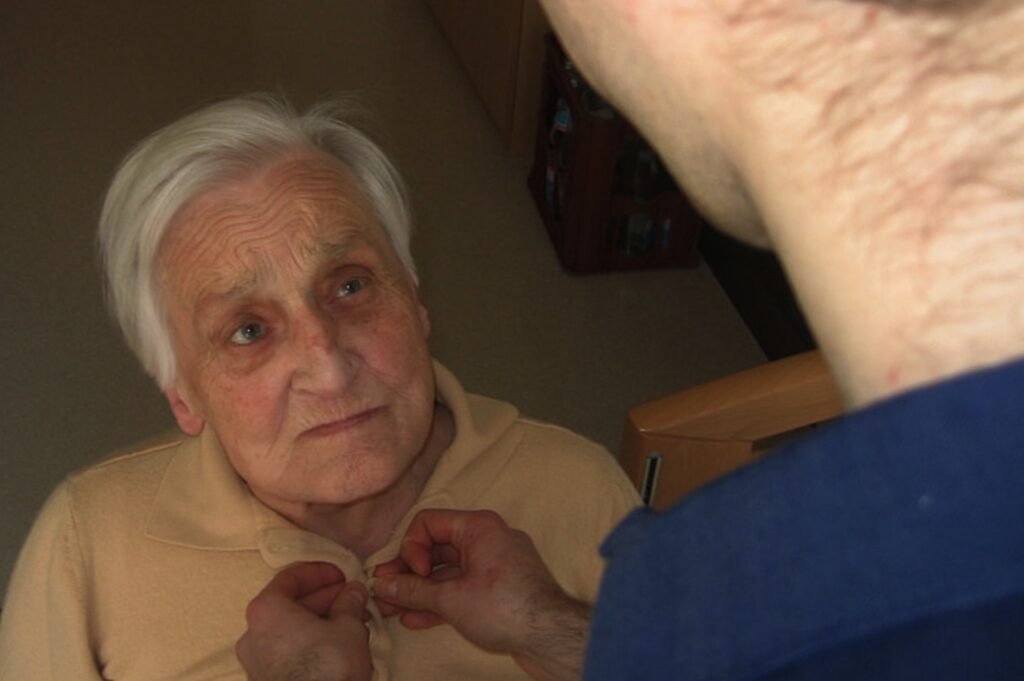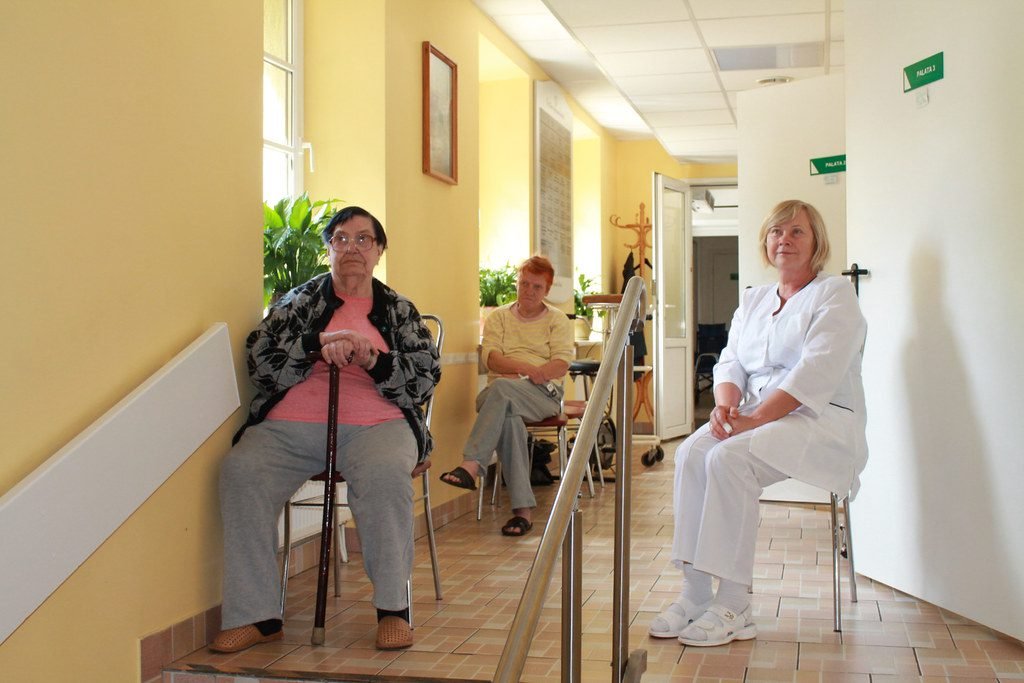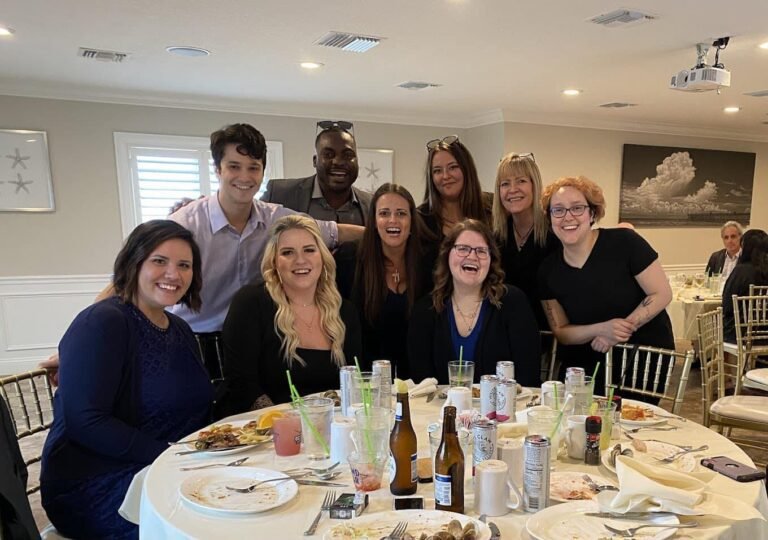Who Should Come First: Your Spouse or Elderly Parent?
Having to choose between a spouse and elderly parents can be quite a frustrating and distressful situation. Such a situation demands careful consideration and then a conclusion.
The question may not be as simple as it may seem. These bonds of love and a sense of responsibility make it difficult to give a straightforward answer to this question. However, with certain strategies, one can manage to maintain a healthy marriage while also caregiving for their elderly parents. This article aims to explore some of the strategies and effective ways to deal with conflicts to maintain a peaceful environment.
Who Should Come First? Spouse or Elderly Parents
When considering questions like who should come first comparing spouse and elderly parents, it is essential to consider the complexities of the bonds. Spousal relationships are lifelong commitments based on love and mutual support.
Parental relationships, on the other hand, are essential bonds based on which we grow and nourish. Both relationships provide a sense of belonging and security and having to choose between them can no doubt be a demanding situation for any individual.


Determining priorities can be situational. For instance, if an elderly parent with a serious health condition requires assistance, immediate attention should be provided. Similarly, if a spouse is caught up in a situation that requires significant focus, they should be prioritized and supported.
However, a decent way would be to strike a balance between the two and find ways to maintain a long-lasting relationship with both of them.
How to Maintain a Healthy Marriage while also Caregiving for Elderly Parents?
Individuals caught up in a tough situation that demands a difficult decision-making ability can maintain healthy relationships with their spouses and elderly parents through certain strategies. These strategies can significantly allow individuals to foster a peaceful living environment free of conflicts.
Open Communication
Foster a supportive environment by encouraging open communication. Discuss the challenges and concerns of both spouses and parents and make sure to address them both fairly.
Honesty and transparency help strengthen a bond even more and makes it long–lasting.
Schedule Quality Time
Make sure to spend quality time with both spouse and parent. Understand that they both have their distinct importance. Arrange date nights with your partner and work on strengthening your marital bond.


Engage in fulfilling activities with your parents and spend quality time with them as well to strengthen the bond and create a peaceful environment.
Set Boundaries
Another important aspect is to set clear boundaries. Ensuring balance is important when engaging in the caregiving process to avoid burnout. Define roles and responsibilities to help maintain balance in the personal life as well.
Encourage Teamwork
With a collaborative approach, the process of caregiving can be made easier. With the help of the spouse, the utmost care and support to the elderly parents can be provided.
Moreover, the division of responsibility can significantly reduce the burden of care on one person.
Self-care Practices
Engage in self-care activities with your partner. Take time out for your favorite hobbies and relax with your spouse. Maintain your personal well-being by engaging in activities you find rewarding.
Flexibility and Adaptability
Caregiving demands flexibility and adaptability. Individuals need to approach their parents with patience and understanding and use care approaches that are according to the needs of the parents.
Caregiving can often cause a change in plans and schedules, however, the key to dealing with it is flexibility and having empathy for the feelings of the parents.
Seek Professional Support
Through counseling and therapies, individuals can deal with conflicts in marriage. Ups and downs are part of every relationship, what’s significant is figuring out a way to get past the problems.


Professional counselors or psychologists may provide couples therapy to help enhance communication and provide coping strategies for couples to continue having a healthy relationship.
How to Address the Conflicts Between Spouses and Parents?
Finding a mediating way to address conflicts between spouses and elderly parents is important to maintaining a peaceful environment. Through the following ways, one can ensure a calm and friendly surrounding.
Recognize Perspectives
When addressing conflicts between two parties, it is vital to consider their perspectives. Understanding the point of view of both parents and spouses can efficiently help in building better communication and effectively dealing with situations requiring problem-solving.
Compromise when Needed
Seek compromise when settling an issue between spouses and parents. Make sure to consider them both and accommodate their needs accordingly.
Open Dialogue
Encourage an open dialogue when finding a solution to conflicts between spouses and elderly parents. Ensure an open and respectful conversation where both of them raise their concerns and understand each other in a better way.
It is essential to create a safe space for everyone to express their feelings and emotions without the fear of being judged.
Time Management
For individuals, it is essential to manage time in such a way that the commitment with both parties is fulfilled. Balancing time is necessary to maintain peace while also handling the needs and requirements of both spouses and elderly parents.


Establish a Unified Front
Present a united front with your spouse when addressing a conflict with your elderly parents. Despite the disagreements, which are common in marital relationships, it is essential to present yourself and your spouse as one entity to exhibit a stronger and unified front.
Can Caregiving for an Elderly Parent Become Distressing?
Yes, caregiving is a tough and hectic responsibility to undertake. It can become distressing at times impacting the caregiver’s emotional and psychological well-being.
Physical Demands
Caregiving often includes tasks that require physical strength such as lifting the parent or assisting with their physical needs. This can lead to exhaustion and strain on the individual’s own health.
Emotional Stress
Witnessing a decline in parents’ physical health as well as the gradual impairment in cognitive abilities is no doubt a difficult situation to encounter. This can induce feelings of helplessness or sadness in family members causing emotional stress.
Time Commitment
Caregiving requires time and attention to attend to the needs of the parents. Constant support may leave little or no time for one’s needs and personal life. This can impact the caregiver’s professional and social lives as well, inducing feelings of isolation or burnout.
Feelings of Guilt
Caregiving for elderly parents may generate feelings of guilt. The inability to provide the utmost care and support and not being able to make the parents’ condition better can generate feelings of helplessness and guilt.
Does Caregiving Affect Marriage?
Yes, being a caregiver, whether to an elderly parent or a close family member can have significant effects on one’s marriage. Caregiving can affect marriage in the following ways
Emotional Strain
Being a constant caregiver can make an individual frustrated or distressed. Caregiver burnout can consequently affect the emotional well-being of an individual as well, altering their emotional functioning.


This stress can further affect marriage, causing tension and emotional exhaustion between partners.
Lack of Attention
Caregiving demands time and attention. If one partner is engaging in caregiving, they may tend to take out less time for their spouse. This lack of attention and time can cause further conflicts, leading to feelings of neglect and isolation in both partners.
Financial Impact
Caregiving can often become a financial burden. Providing care and support to an elderly parent while also providing them with medications can have a significant impact on financial stability.
This can lead to financial conflicts and may induce stress and frustration in both partners.
Impact on Intimacy
The responsibilities of caregiving may have a significant impact on the intimacy between spouses. With the constant caregiving, spouses may become distressed, impacting the emotional connection within the marriage.
Can Care Options be Considered for Parents?
Yes, depending on the conditions and choices of elderly parents, certain care options can be considered. Individuals may not receive professional care in the home setting and hence care services can be considered to improve the well-being and quality of life of parents.
Home Care
A professional care team provides the utmost care and support to individuals in the comfort of their homes. Patients continue to benefit from care services such as medication management or assistance with daily life activities in familiar surroundings.
Assisted Living
Assisted living provides care services while also maintaining independence in individuals. Individuals seeking quality care while also preserving their autonomy can opt for assisted living. The compassionate care team in assisted living helps with meal preparation, laundry, and other necessary daily life tasks.


Hospice Care
For individuals with a terminal disease, hospice care may be the best option. Hospice care focuses on improving the physical, emotional, and social health of an individual to improve their quality of life.
It can be provided in both home settings or specialized facilities.
Nursing Homes
Another option for care is nursing homes. Individuals who require medical attention and round-the-clock supervision can choose nursing homes.
With a specialized staff committed to providing comprehensive medical care to patients, nursing homes can be a great option as well.
Adult Day-Care
Adult day-care offers care services to senior individuals during the day so that the families and caregivers can attend to their personal needs and responsibilities while their loved ones receive professional care services.
Conclusion
When life takes a harsh turn and demands a tough decision between choosing spouses or elderly parents, make sure to think rationally considering love, duties, and responsibilities before making a decision. What’s essential is to maintain a balance between the two to avoid conflicts of any sort and maintain a calm environment.
Ultimately, the decision isn’t about choosing one over another but about finding a mediating way to resolve conflicts and address the concerns of both parties. Through tolerance, understanding, and a deep compassion for relationships, people can continue maintaining and nourishing bonds.
FAQs
How do I talk to my spouse about the emotional challenges of caregiving for parents?
Express your feelings and challenges openly and honestly. Give your spouse a chance to understand where you're coming from so they are aware of your emotional stress and exhaustion.
Do cultural expectations influence caregiving decisions?
Yes, cultural expectations significantly influence caregiving roles, decisions, and responsibilities.
How do I prevent burnout while providing caregiving to my elderly parents?
Prioritize self-care and take some time out to address your personal needs as well. Taking breaks can also help prevent burnout.
How do I provide care to my stubborn elderly parents?
Approach them with empathy and understanding. Provide them with a safe space to raise their concerns and communicate them. Show patience and most significantly, ensure to involve them in decision-making.
Should I discuss the caregiving plans and expectations with my spouse before conflicts arise?
Yes, discussing caregiving plans with your spouses helps in understanding each other better and minimizes the chances of conflicts in the marital relationship.




![What Are The Pros & Cons of Assisted Living? [2024 UPDATED]](https://caringhandshomecarefl.com/blog/wp-content/uploads/2024/01/Assisted-living-care-pros-cons-e1704122253120-768x612.jpg)

![20+ Signs Your Elderly Is Ready for Assisted Living [2024]](https://caringhandshomecarefl.com/blog/wp-content/uploads/2024/01/Signs-Your-Elderly-Is-Ready-for-Assisted-Living-768x644.jpg)
